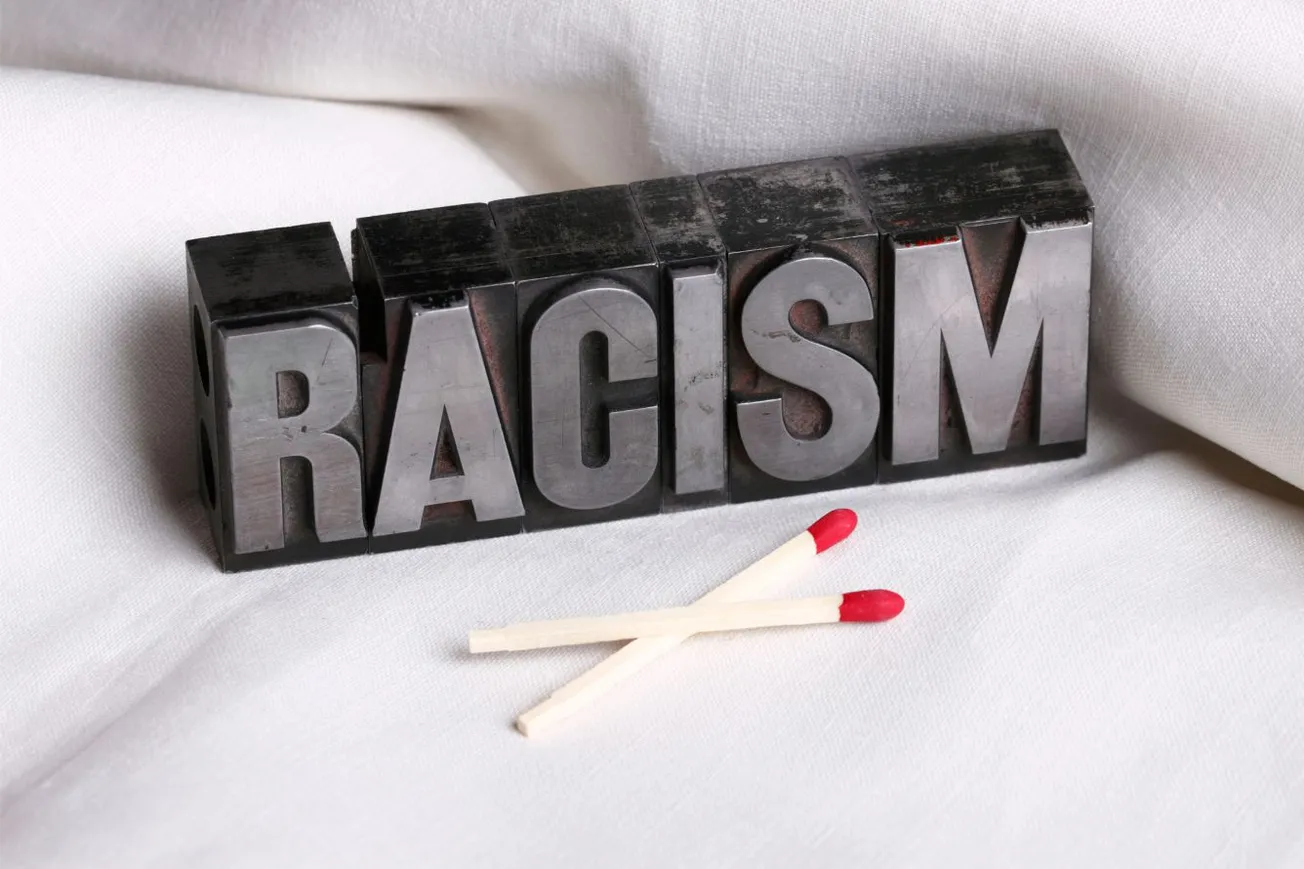The most fascinating, and troubling, aspect of Donald Trump’s Republican campaign for president is his decision to revel in the fact that he is a bigot and a racist. In fact, he uses his overt disdain for non-White migrants as a selling point and millions of voters are eating it up.
That is not an opinion, it is fact. Trump, the former president seeking a return to the White House after a four-year hiatus, regularly characterizes dark-skinned, undocumented immigrants as “animals” and “vermin” and accuses them of all sorts of hideous crimes and conduct, even though an analysis of census data by the Cato Institute, a right-leaning organization, found that immigrants are less likely to commit crimes in the U.S. than those born here.
Last December, during a rally in New Hampshire, assuming the guise of Joseph Goebbels, Trump said undocumented immigrants are “poisoning the blood of the country. That’s what they’ve done.” This week, during a radio interview on The Hugh Hewitt Show, he said migrants are predisposed to bad conduct because “it’s in their genes.”
“And we got a lot of bad genes in our country right now,” he said.
If that isn’t bigotry and racism, then nothing is.
And it doesn’t end there. A subset of Trump’s libel are Haitian emigres, in this country legally, who have located to small cities like Springfield, Ohio in search of work. Trump has circulated the lie that these folks, who are Black, are eating dogs and cats, the pets of their neighbors. He has vowed, if elected, to return these hard-working folks to whence they came.
Trump is using his irrational and baseless rhetoric as a way to drum up support for his harsh proposed immigration policies, which include a potential reign of terror – rounding up millions of undocumented individuals and returning them to their countries of origin, even though many of them might face a cruel fate in doing so.
Let’s be clear, U.S. immigration laws are ripe for vigorous political debate. Millions have crossed the southern border without proper authorization, usually seeking work to support their families, sending a substantial amount of their earnings home while often living in squalor.
It’s been said, quite accurately, that America is a great place and it would be wonderful if all peoples of the word could benefit from living here. That, obviously, is impossible, so the U.S. should devise a cogent system of determining who can come and who can stay.
But that shouldn’t open the door to a punitive system, and it certainly shouldn’t lead to the bigotry and racism of the sort being spread by Trump and his ilk. If for no other reason, it casts a critical and often abusive eye on long-term foreign-born residents living here legally, many of them having become U.S. citizens, who become targets of disparagement.
And lest we forget, Senate Republicans authored an immigration reform package that drew the support of President Biden and most Democratic lawmakers. House and Senate Republican leaders subsequently deep-sixed the package in the face of opposition from Trump, who preferred using the issue as a political cudgel rather than seeking to resolve it.
Kentucky is not the epicenter of immigration in this country but, from all indications, it benefits on several levels, particularly when it comes to agriculture. From all indications they work hard and, for the most part, become contributing members of the Commonwealth community while displaying none of the characteristics attributed to them by the Lord of Mar-a-Lago. There’s no reason to judge that dark-skinned natives from south of the border who arrive in the Bluegrass are animals, or that their genes will lead them to perform evil acts.
According to the Migration Policy Institute, a non-partisan think-tank, Kentucky’s unauthorized population numbers about 46,000 in a state with a population of 4.5 million. Forty-five percent, about 21,000 people, are Mexican by birth. The other largest home bases are Guatemala and Honduras.
A significant number, 5,000, have lived in the U.S. for 20 years or more, although most, 13,000, have been here less than five. Most live below the poverty level and their jobs, when they have one, include accommodation and food services, often hotel or motel maids, manufacturing, construction, professional, and within the agricultural sector.
So, what do these folks do in Kentucky other than, in Trump’s diseased mind, rape and pillage?
The Kentucky Hispanic Heritage Project maintains that during the latter part of the 20th Century Kentucky’s Mexican population worked primarily on tobacco farms, often via a temporary-work permit, cutting, hanging and drying the burley crop, “often in hot barns with lofty rafters.”
“Movement to Lexington during this time period brought men coming to work on these farms for many hours a day, with little pay, while their families, close to or over a thousand miles away, stayed in their home country,” the Project reported. “Other than the exhausting physical labor, tobacco farming’s downfall is that employees can only work when tobacco is being planted and harvested. This means that for many of the winter months, workers would be without jobs and a way to support their families.”
The collapse of the burley economy took its toll on immigrant labor, although it still exists to a lesser degree to this day. The Commonwealth produced 91,393,832 pounds of tobacco in 2022, according to the U.S. Department of Agriculture, a fraction of the so-called billion-dollar crop of 1997 that produced 497,856,252 pounds. Despite the decline, workers from Central America supply the labor for what remains.
“There’s no escaping the harsh realities of the job,” wrote photojournalist Luke Sharratt for the New York Times in 2021. “The working conditions are uncomfortable. The work itself is strenuous. Health experts have long pointed to the serious threats workers face from nicotine poisoning, pesticides, and dehydration.”
These are the animals with bad genes Trump keeps referring to.
The biggest contemporary beneficiary of migrant laborers is the state’s vaunted horse industry, both on the huge-acre farms and in the stalls at local race tracks.
Per the Kentucky Hispanic Heritage Project:
“In the late 1990s and early 2000s, the horse industry offered a way out for many of the Hispanic and Latino workers who had already established connections in Lexington and the surrounding counties. Harvesting and hanging tobacco was substituted for by cleaning stalls and work in training, breeding, and racing Kentucky’s famous thoroughbred horses. The steady jobs provided by the horse industry allowed many families to settle and live in Kentucky year round, and is considered to be one of many factors leading to a substantial increase in the number of Hispanic and Latino residents living in Lexington and the surrounding communities.
“These immigrants brought more than their labor to the state; this period also signals the establishment of Hispanic-owned businesses throughout the region, the emergence of increased language-support services in both health care and the school systems, and increased cultural presence through festivals and artistic production.”
These are the folks — your neighbors — who are the subject of Trump’s vitriol when all they are trying to do is, like everyone else, make their way in the world without a whole lot of fanfare. It should be said that a vote for Trump abets what he says about these folks.
So the next time you venture to Cinco de Mayo in Lexington or NKY or the Guadalajara in Lone Oak for tacos and a few margaritas, try to remember the person serving you with a Latin accent is not an animal.
--30--
Written by Bill Straub, a member of the Kentucky Journalism Hall of Fame. Cross-posted from the NKY Tribune.








